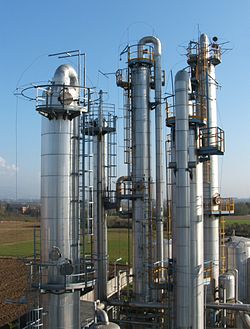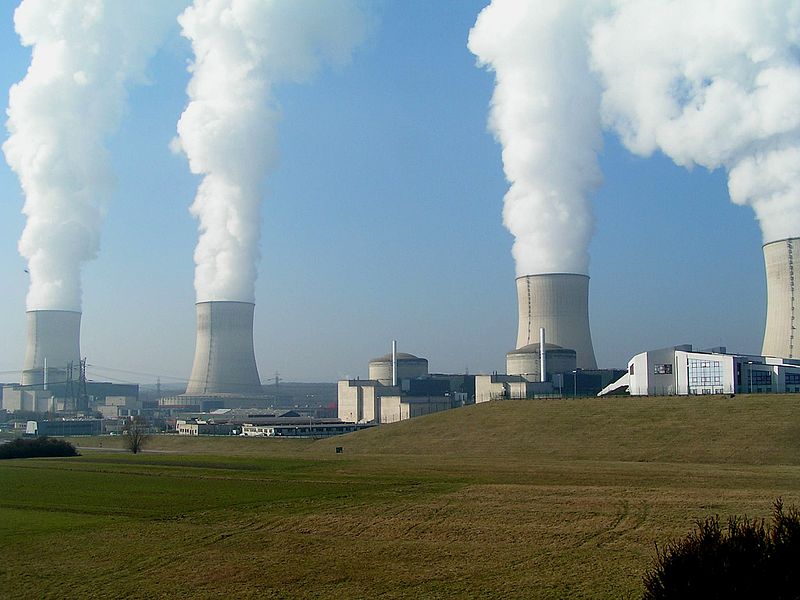BYU Chemical Engineering Courses
 Chemical Engineering courses are designed to help students to gain a strong understanding in foundational sciences and mathematics. This knowledge then serves as a basis for a comprehensive understanding of how the world and subsequent physical phenomena operate. This leads to the ability to modify and control one's surroundings in an effort to make life better for oneself and others, which is the heart of what chemical engineers seek to accomplish.
Chemical Engineering courses are designed to help students to gain a strong understanding in foundational sciences and mathematics. This knowledge then serves as a basis for a comprehensive understanding of how the world and subsequent physical phenomena operate. This leads to the ability to modify and control one's surroundings in an effort to make life better for oneself and others, which is the heart of what chemical engineers seek to accomplish.
The following courses emphasize a mathematical based understanding of nuclear physics, fluids mechanics, and other basic chemical engineering principles. They also emphasis the instruction of how to use this theoretical knowledge to approach, simplify (realistically) and solve real life problems. For example, if one were to try to calculate the terminal velocity of 3 objects falling through a deep crevice in the earth, finding exact solutions which depend on all phenomena regardless of scale and relevance is an exercise in futility, due to the complexities invovled. However, one could make simplifying assumptions that do not drastically alter the driving phenomena yet provide reasonable estimates to the problem of interest, i.e. the velocities and accelerations of the objects. This approach to real-life engineering problems is introduced and practiced in each of the courses listed. This approach supplies students with the expertise and tools necessary to understand and contribute to work in the corresponding fields.
Fluid Mechanics
 Fluid Mechanics is the study of continuum such as liquids and gases and their behavior under various conditions and under the influence of forces or methods of momentum transfer. This course focuses on the several topics including the defition and properties of fluids, evalution of stagnant fluids and moving fluids, and the key phenomena involved with newtonian and non-newtonian fluids. As part of the course, analysis tools are introduced and utilized in evaluating fluids, the Reynolds transport theorem, the material derivative, dimensionless analysis, and computational fluid dynamics (CFD). Students of the course will be able to identify, characterize, and solve a wide variety of key fluid mechanics problems using the aforementioned tools.
Fluid Mechanics is the study of continuum such as liquids and gases and their behavior under various conditions and under the influence of forces or methods of momentum transfer. This course focuses on the several topics including the defition and properties of fluids, evalution of stagnant fluids and moving fluids, and the key phenomena involved with newtonian and non-newtonian fluids. As part of the course, analysis tools are introduced and utilized in evaluating fluids, the Reynolds transport theorem, the material derivative, dimensionless analysis, and computational fluid dynamics (CFD). Students of the course will be able to identify, characterize, and solve a wide variety of key fluid mechanics problems using the aforementioned tools.
Introductory Nuclear Engineering
 Nuclear Engineering is a broad topic that would necessitate an entirely separate degree program, as has been set up in several accredited universities accross the world. However, the similarities and shared theoretical models between nuclear engineering and chemical engineering facilitates the development of an overview of the nuclear engineering field in the context of a senior level chemical engineering elective course. This course summarizes the foundational tenents of nuclear engineering, including but not limited to nuclear and particle physics, radiation science, health physics, reactor design, reactor safety, public considerations, the fuel cycle, and advanced nuclear power technologies. This course is intended to cover a broad range of materials, and is a preparatory course for any chemical engineers interested in a career or continued studies in the nuclear engineering field.
Nuclear Engineering is a broad topic that would necessitate an entirely separate degree program, as has been set up in several accredited universities accross the world. However, the similarities and shared theoretical models between nuclear engineering and chemical engineering facilitates the development of an overview of the nuclear engineering field in the context of a senior level chemical engineering elective course. This course summarizes the foundational tenents of nuclear engineering, including but not limited to nuclear and particle physics, radiation science, health physics, reactor design, reactor safety, public considerations, the fuel cycle, and advanced nuclear power technologies. This course is intended to cover a broad range of materials, and is a preparatory course for any chemical engineers interested in a career or continued studies in the nuclear engineering field.
All images are taken from http://en.wikipedia.org
